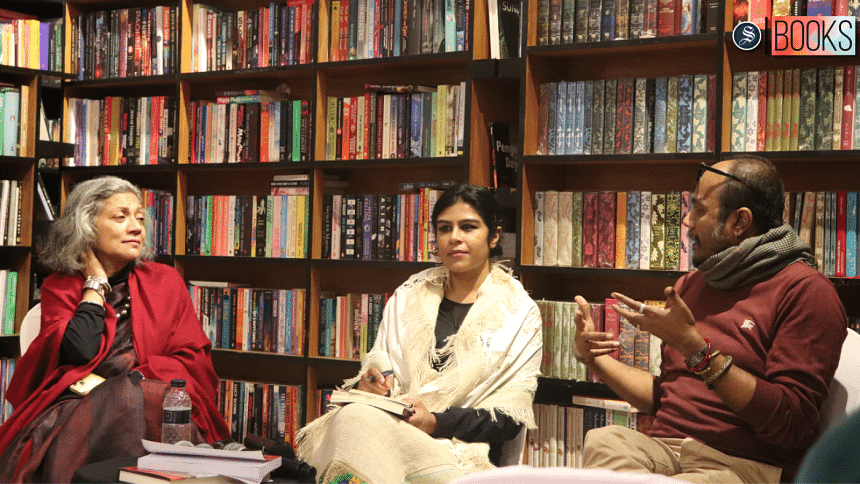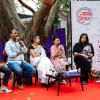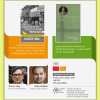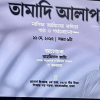Violence, justice, and the aunties in between: Discussing the “intimacies of violence”

Intimate partner violence (IPV) is often a complex and taboo matter to discuss in Bangali society, and this was reason enough to make Nadine Murshid's book, Intimacies Of Violence: Reading Transnational Women in Bangladeshi America (Oxford University Press, 2024), special, as it deals with such a sensitive issue. However, Murshid takes the discussion a step further in the book by including a much more holistic account of the phenomenon, where she talks about the myriad ways in which nationalism, racism, and other factors affect IPV.
All this and more came up in the discussion and book reading session arranged by Bookworm Bangladesh on January 2, 2025. The event featured author Nadine Shaanta Murshid (Associate Professor at the School of Social Work, University of Buffalo), Dina Mahnaz Siddiqi (Professor, New York University), and Manosh Chowdhury (Professor, Jahangirnagar University).
The conversation started with Professor Murshid discussing her initial motivations for writing the book. She wanted to explore how middle-class women were facing and tackling IPV, and how this phenomenon challenged the narrative that if women were given financial and legal resources, it would be enough for them to break out of violence, as middle-class women were still facing the issue despite having access to these resources. Gradually, she felt that she needed to include how racism, nationalist stories about the Birangona, etc. further complicated the issue. This is how the book grew and took shape.
In the next segment of the book talk, Professor Murshid requested four volunteers from the audience, who were asked to read out one statement each from her book and share their thoughts on it. The passages were selected by her, and sparked an interesting exchange with the volunteers who, unaware of the original contexts of the quotes, had to interpret the statements in their own way. Later, she read out the passages from which the statements were taken, and discussed how close the volunteers had gotten to grasping the actual context.
Next, Professor Siddiqi took the floor and elaborated on the necropolitical angle previously referenced by Professor Murshid, and discussed why reporting on violence against women often tends to take a much more sensationalist and voyeuristic form. She also focused on how feminism often becomes an imperialist tool for the West, attempting to "civilise" the Global South about treating their women right. She concluded by talking about the component of love, and how the complex emotions of the human psyche make the issues of justice or change much more difficult to achieve, taking examples from the book for her discussion.
Professor Manosh Chowdhury spoke afterwards, highlighting the role of aunties—or the "transcendental aunties" as he called them—who act as the bridge between young Bangladeshi migrant women and their social transformation into members of the patriarchal hierarchy. The aunties don't necessarily refer to every individual woman who is older or more mature, but is rather a personification of the social process which tries to influence women to continue reproducing the traditional societal order. The talks were followed by a question and answer session and an interactive exchange between the speakers and the audience.
The event was engaging throughout, with the speakers and audience both participating in the discussion actively. The questions this book poses aren't abstract, but instead deeply human and capable of touching real lives. It serves as a reminder of the importance of continuing to seek, debate, and discuss realistic solutions to intimate partner violence and gender-based violence.
Sadman Ahmed Siam, as the name suggests, is indeed a sad man. Send him happy quotes at: [email protected].

 For all latest news, follow The Daily Star's Google News channel.
For all latest news, follow The Daily Star's Google News channel. 










Comments